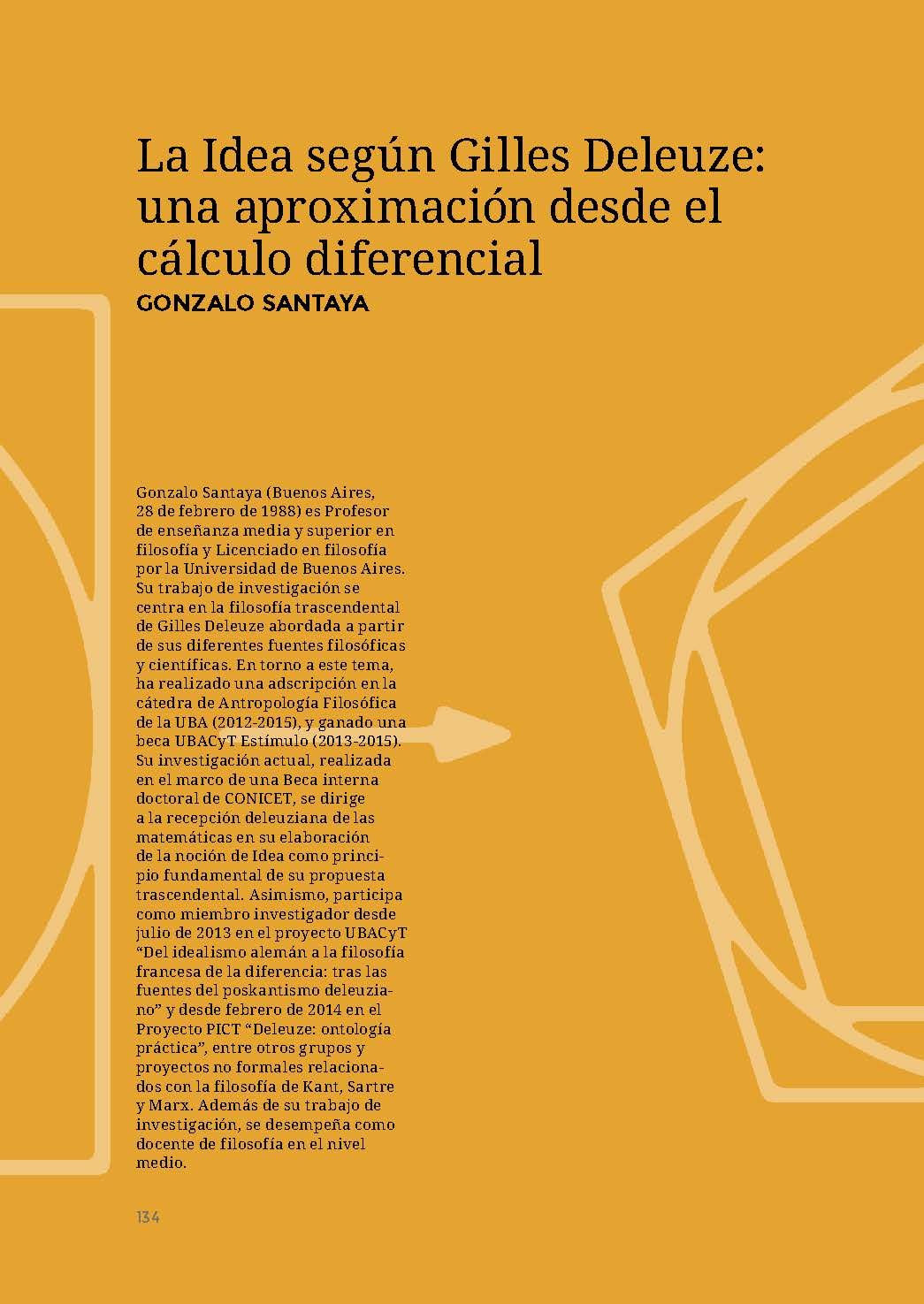The Idea according to Gilles Deleuze: an approach from differential calculus
Keywords:
Deleuze, Ideal, transcendental empiricism, differential calculusAbstract
This article attempts to explain Gilles Deleuze’s concept of “Idea” based on his interpretation of the differential calculus. We support the thesis that this use of mathematical tools must be understood in the context of Deleuze’s transcendental philosophy, known as “transcendental empiricism”. This implies, on the one hand, rebuilding the significance of Deleuze’s transcendental position in contrast with Kant’s, and the role that mathematics plays in that position; and on the other hand, describing the Idea –the philosophical principle of transcendental empiricism– as it is structured in Difference and repetition, according to the moments of the differential calculus: dx, dy/dx, values of dy/dx. From these three moments, the three aspects –logical, ontological and transcendental– of the Idea are articulated according to the virtual process that helps to explain the genesis of determinations in the actual world. We will carry out this description by showing the internal relation between these three moments, with the conviction that the mathematical characterization of the deleuzian Idea presents an alternative view to the metaphysical tradition, which thinks the Idea based on propositional logic, overcoming inherent problems of this tradition and enhancing the notion of Idea.
Downloads

Downloads
Published
How to Cite
Issue
Section
License
Copyright (c) 2015 Gonzalo Santaya

This work is licensed under a Creative Commons Attribution-NonCommercial-ShareAlike 4.0 International License.




